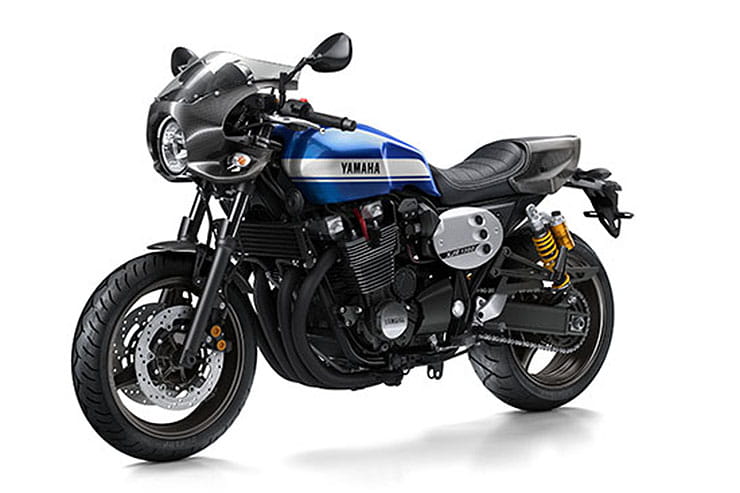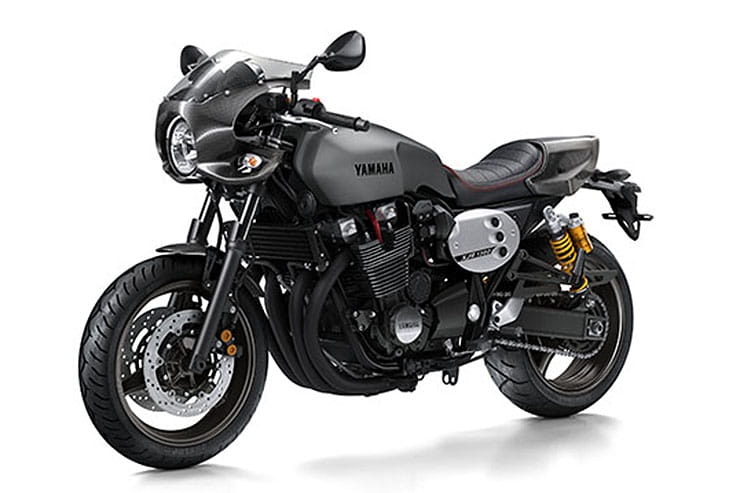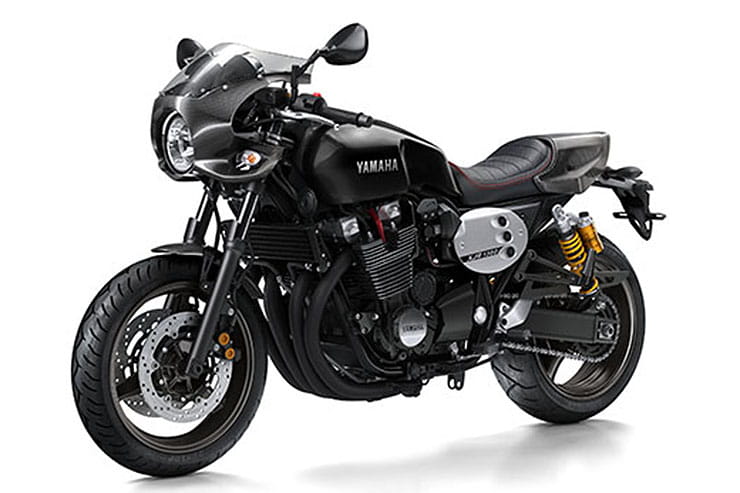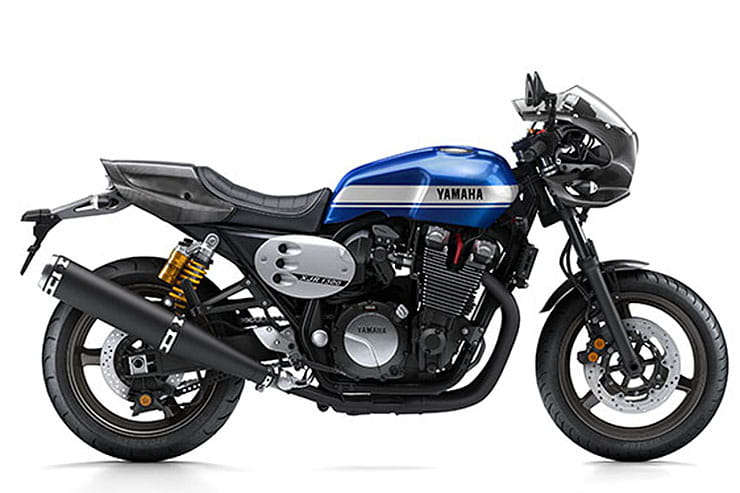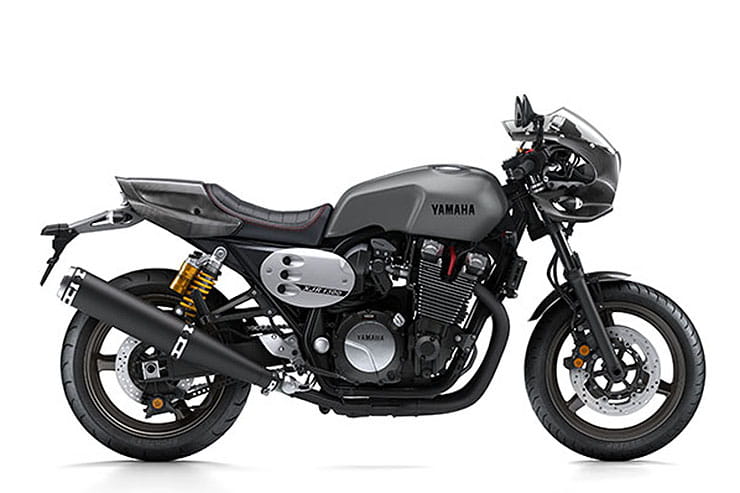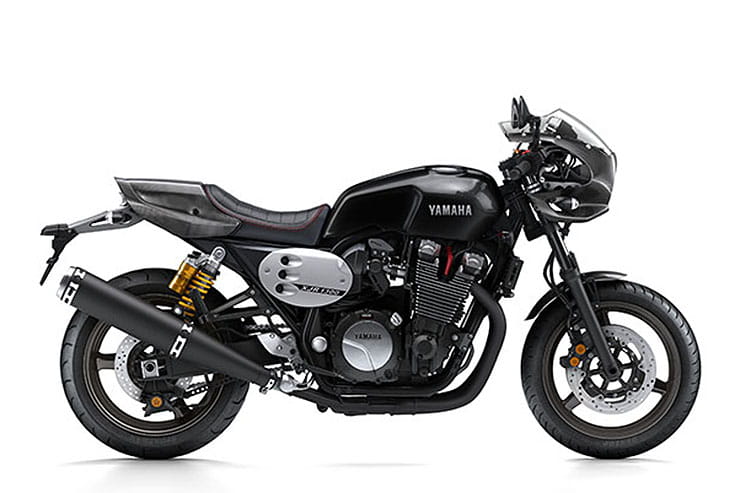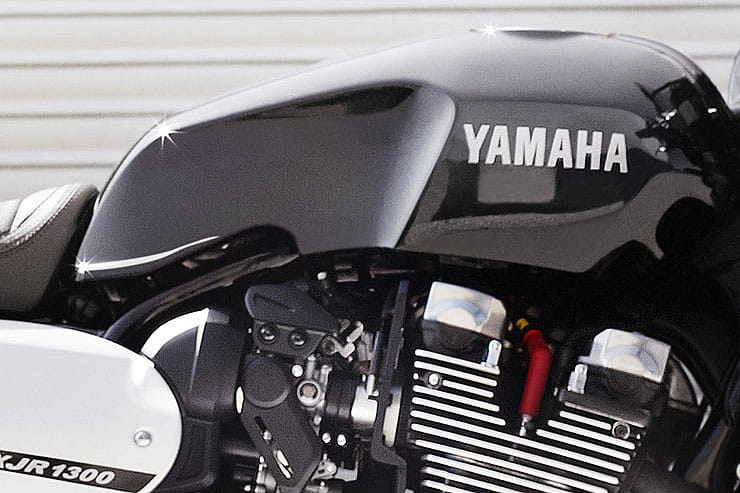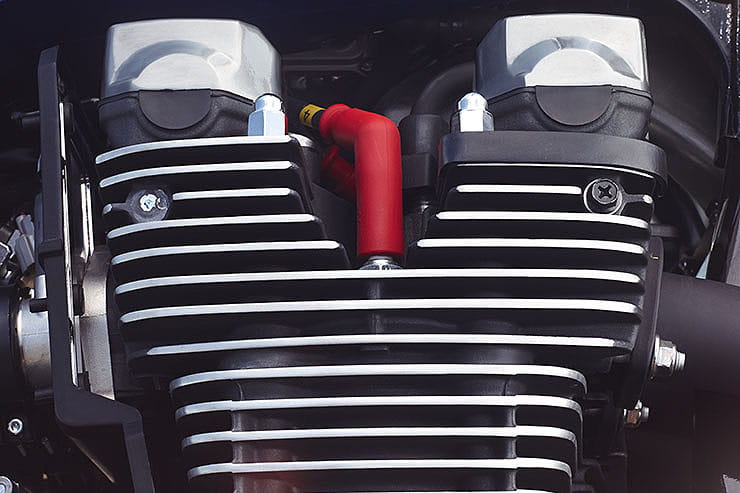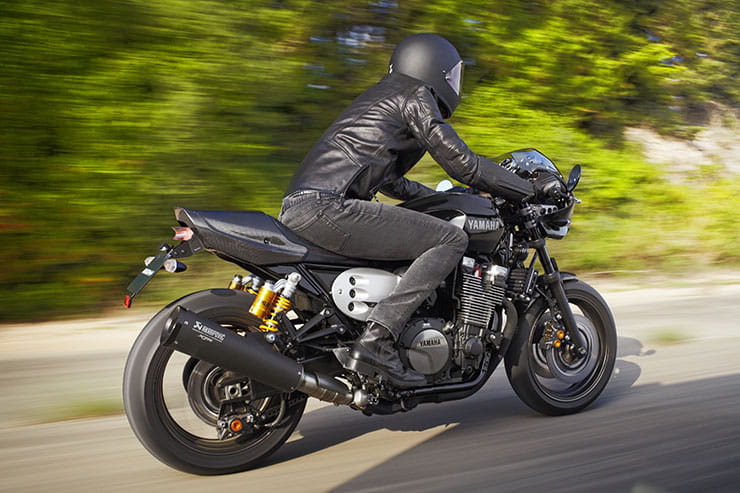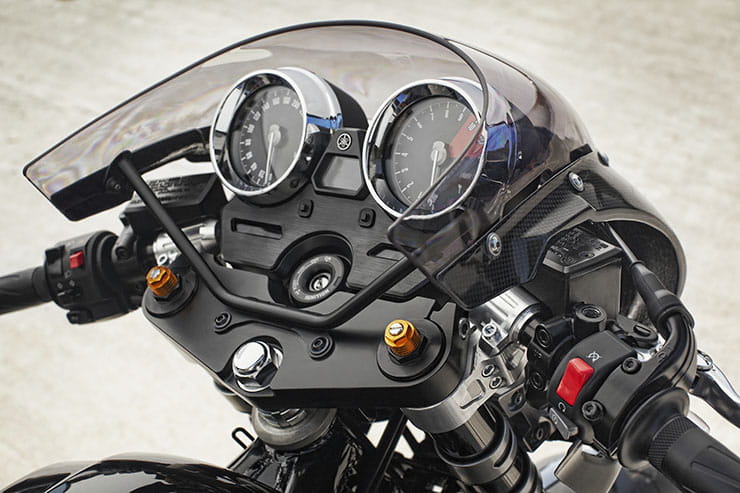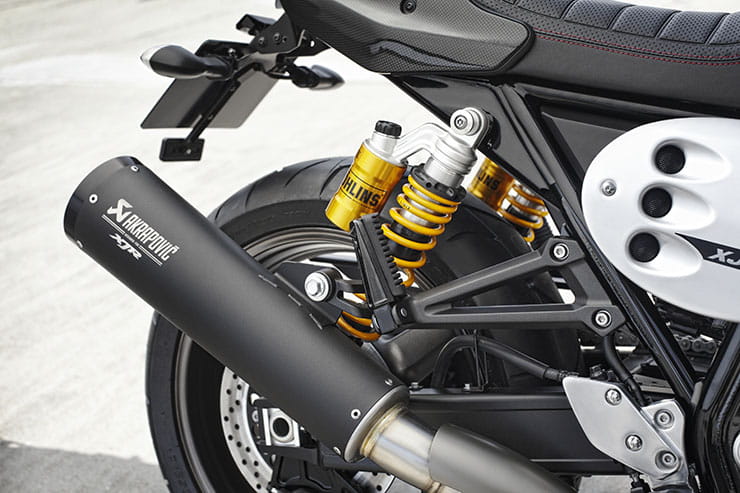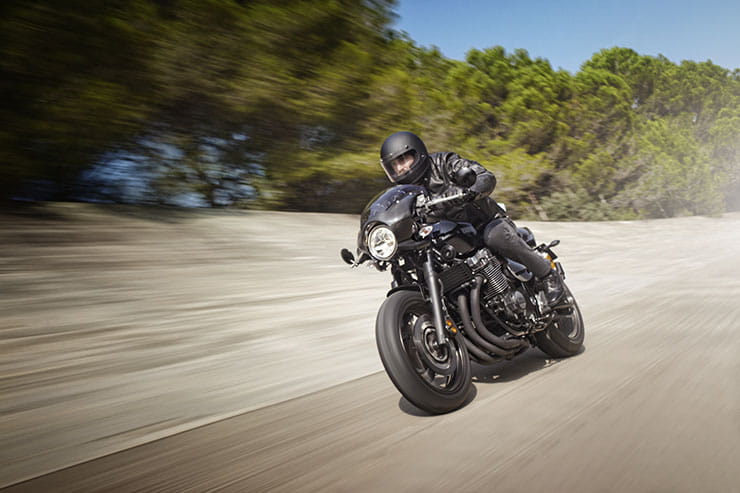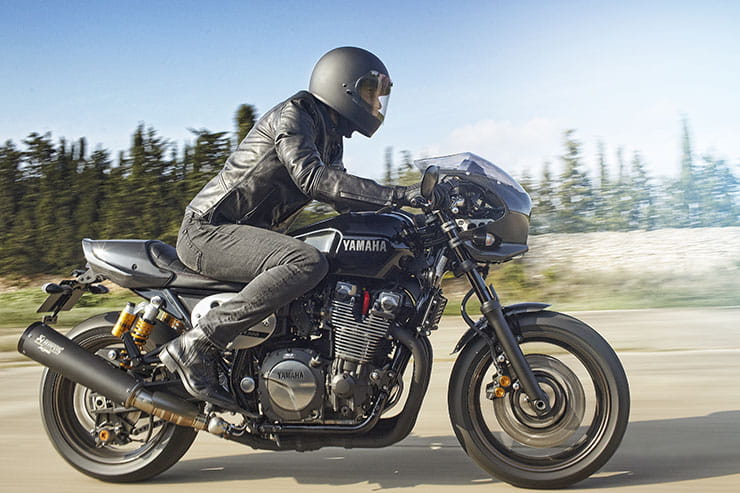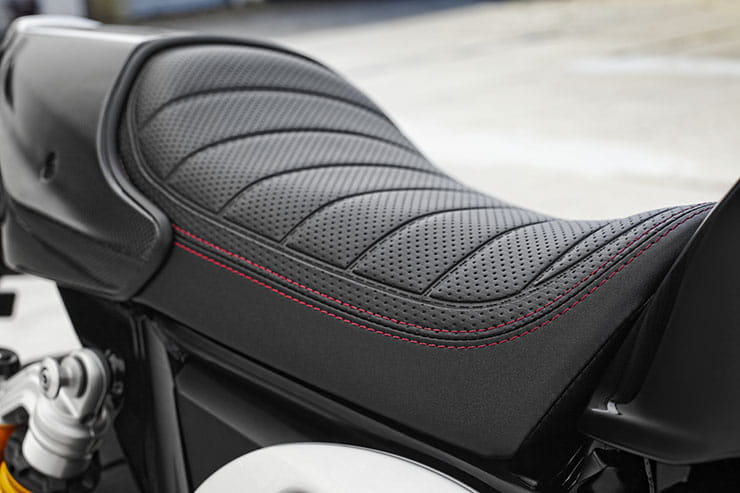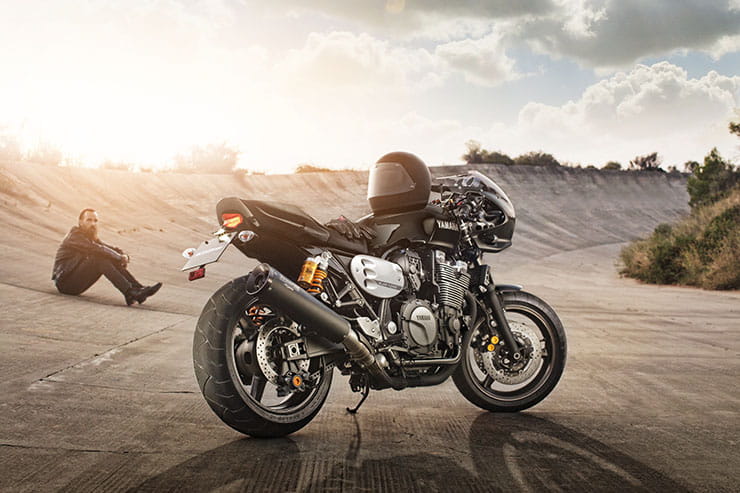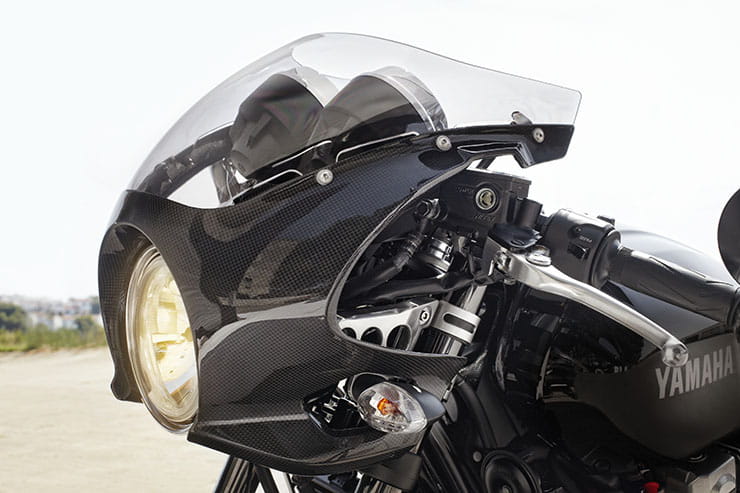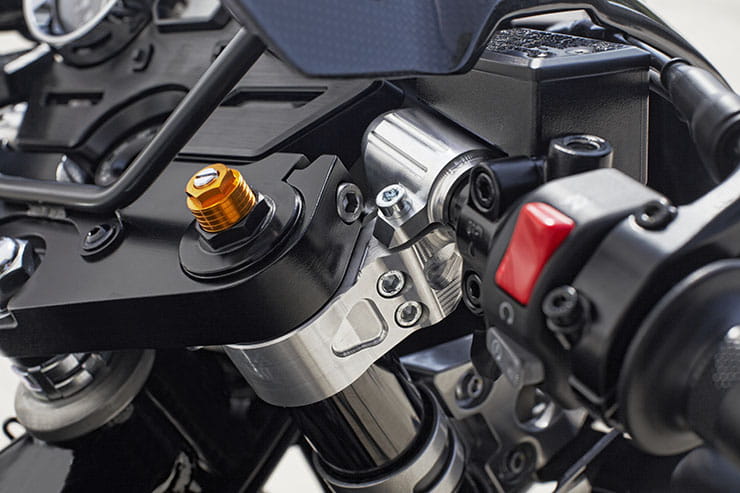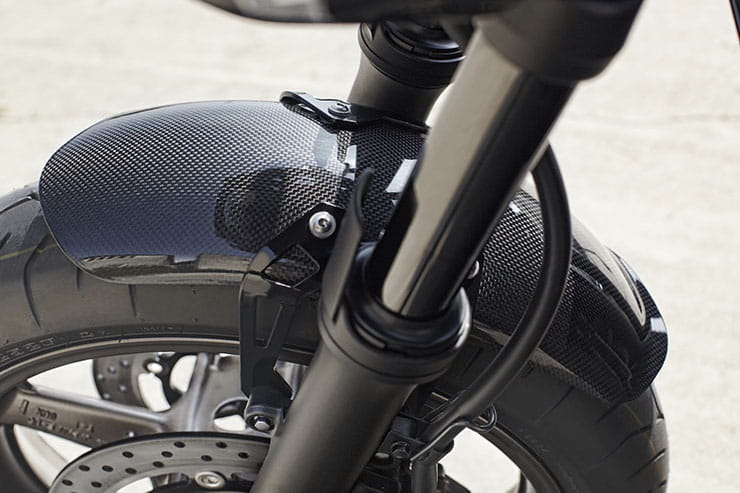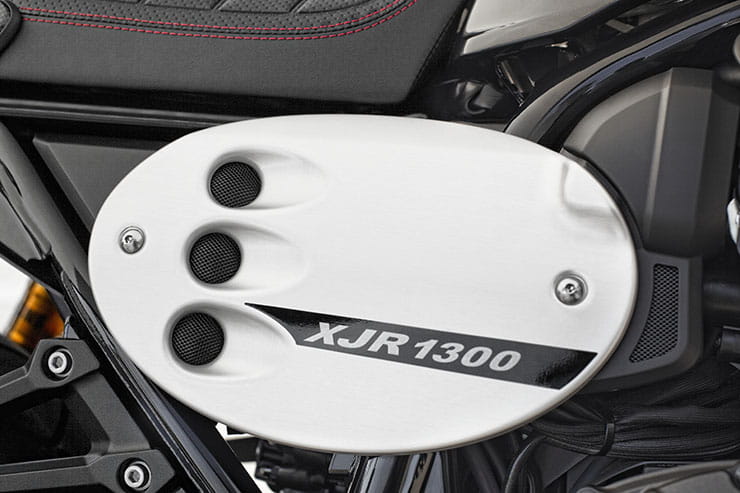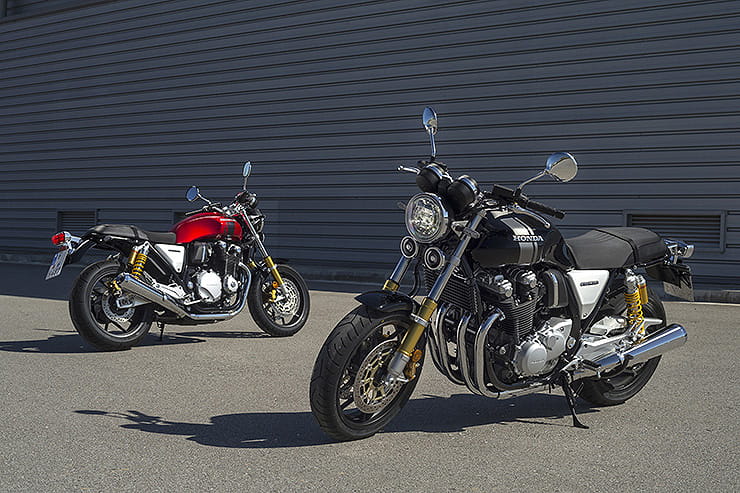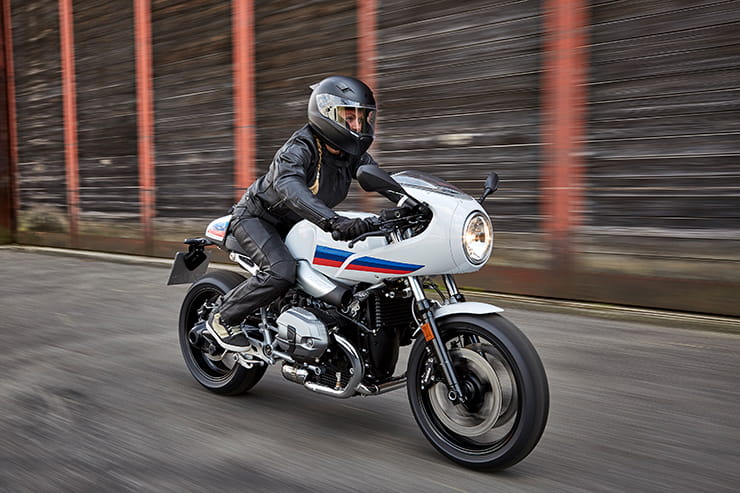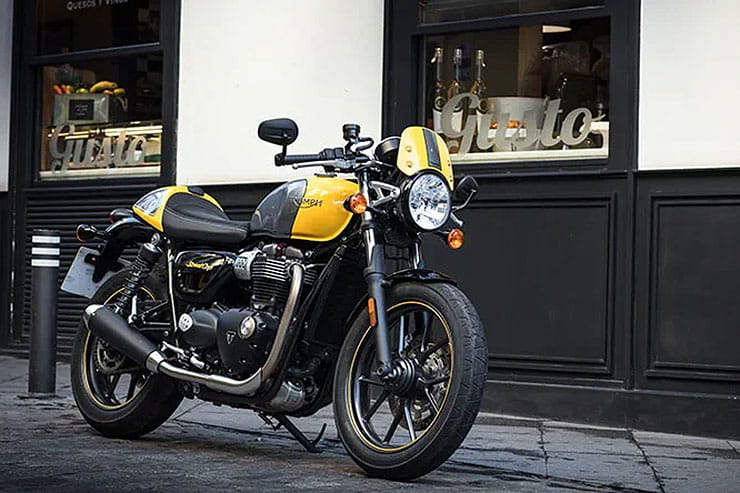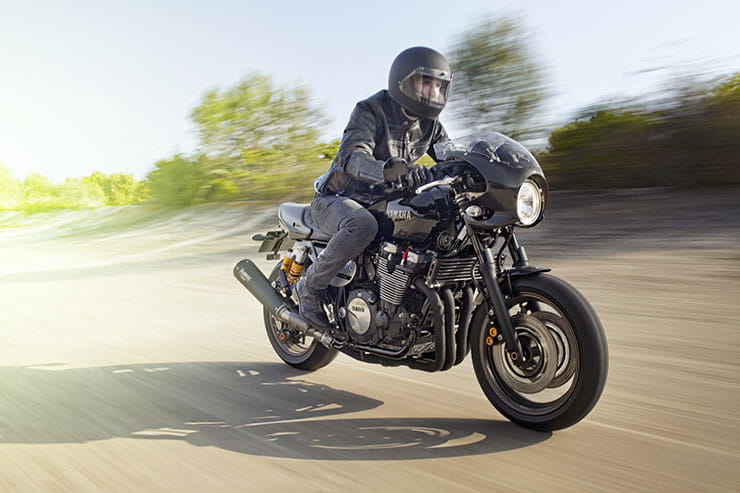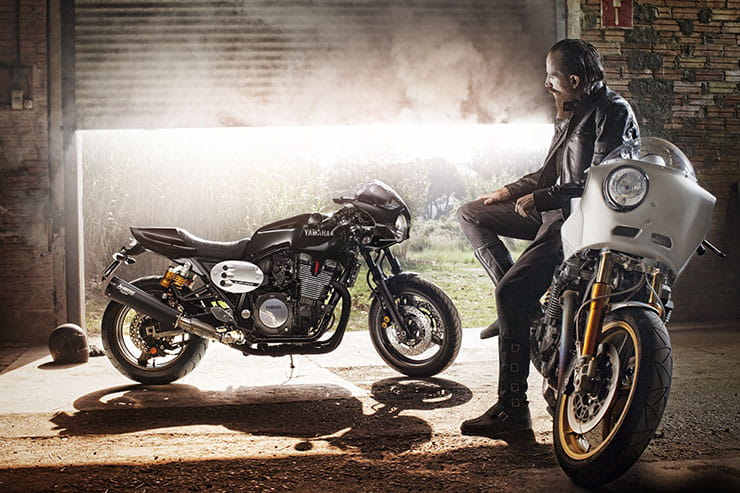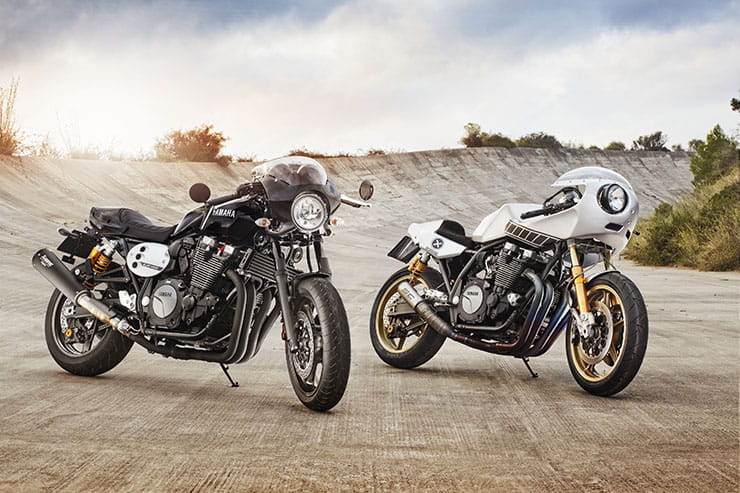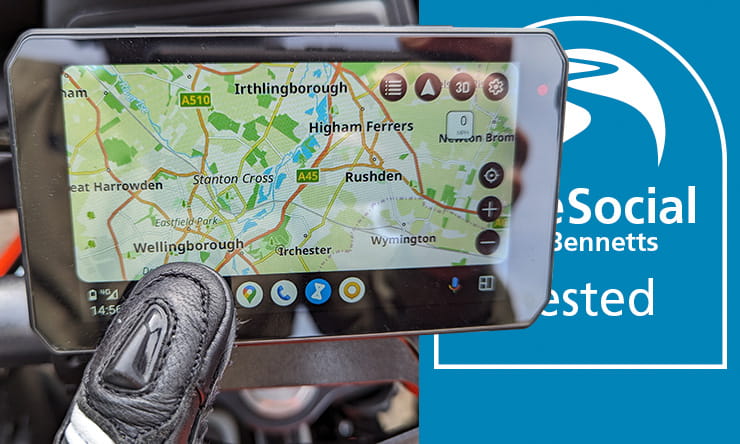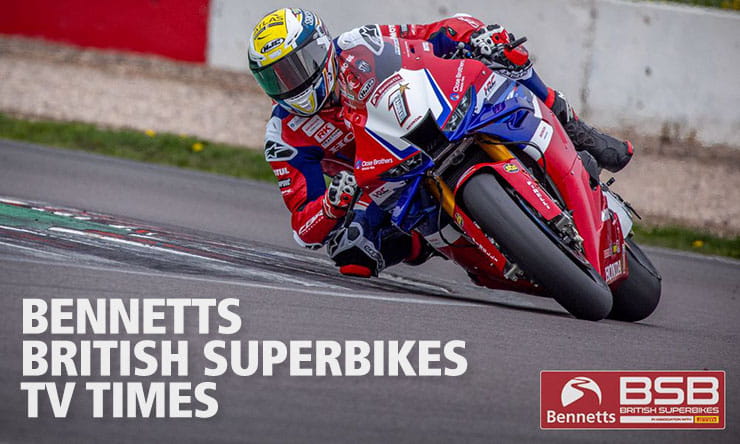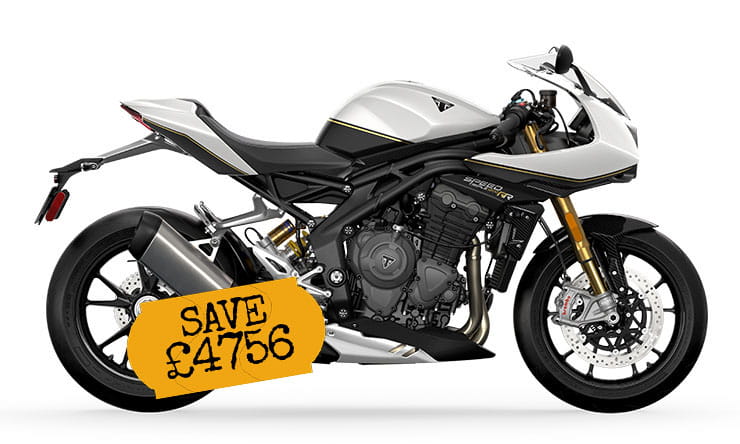Price: £5500-£7000 | Power: 96bhp | Weight: 240kg | Overall BikeSocial Rating: 2/5
In 2015 Yamaha decided to give their old-faithful XJR1300 a bit of a ‘Yard Built’ refresh to make it more appealing to modern riders. Or more precisely, take advantage of the ‘hipster’ trend for air-cooled bikes. In doing so they moved the traditionally very relaxed and easy-going XJR away from its old-school ways (they reduced its tank size, sharpened its seat and made it more aggressive-looking) and in doing so actually alienated its established fanbase. But that wasn’t all, alongside the new XJR1300 arrived a sporty café racer variant – the XJR1300 Racer. Technically a dealer-fitted bolt-on accessories bike, the XJR1300 Racer was a total failure for the firm. Hideously uncomfortable to ride and lacking any of the XJR1300’s charm, it bombed and was quickly removed from the model line-up. An interesting bike that certainly has visual appeal, the Racer’s unpopularity means it can be had for a fairly reasonable amount of money in the used market. And there are even a few brand new bikes out there for sale! Tempted? You do need to know what you are getting into before you part with any cash so read on carefully...
Pros & Cons
- Great engine
- Cool styling
- Respectable price tag
- Hideously uncomfortable riding position
- Terrible riding position
- Did we mention the clip-on bars?
Yamaha XJR1300 Racer (2015) Price
Brand new the Racer cost £9599, which was a £1000 premium over the standard XJR1300. Very quickly the Racer’s unpopularity saw this RRP drop like a stone and it was often advertised for far less to shift stock, even undercutting the standard XJR1300. Nowadays you are looking at paying between £5000 and £7000 for a used Racer, however there are a few advertised for around the £7500 price point. Realistically, they don’t sell so you can dig your heels in and chop this to £7000. Happily, thanks to their uncomfortable riding poisoning, very few have big miles on them! Weirdly, or not if you ride one, there are a few brand new pre-registered bikes for sale (emission regulations changed in 2017, forcing dealers to pre-register them) – however dealers are asking over £8000 for them, which isn’t worth paying over a used bike.
Engine and Performance
The XJR1300’s air-cooled engine was left pretty much unchanged in the 2015 update and makes a very pleasing 98bhp with 80ftlb of torque. A beautiful motor, it may only have five gears but it is a really charming engine that delivers bags of smooth mid-range drive and exceptional reliability. Very old-school in both its looks and feel, it is the XJR’s outstanding feature and owners absolutely adore its performance. As well as its ease of maintenance and reliability – which is important on a used bike.
When it comes to issues, the XJR is generally fault-free. You get the very occasional electrical problem relating to a duff reg/rec but they are fairly rare and instead you need to worry about basic maintenance. Unlike Yamaha’s water-cooled bikes, the XJR has 12,000-mile valve-clearance intervals (it’s 24,000 on water-cooled models) so you need to bear this in mind. As the motor is very exposed the service bill isn’t huge, around £400, but it needs to be done as the clearances do close up over time. A lot of XJR owners do simple services themselves (oil, filter etc) so check for poor DIY skills by inspecting the state of the sump drain plug to see if it has been overtightened and cracked the sump. The XJR may be old-school but it still has an EXUP valve, so check it is opening and shutting correctly on a test ride and not throwing up any fault codes (they don’t like to be left standing), and also inspect the condition of the oil cooler radiator, which can get battered by stones. And the same is true of the front of the engine, which can look pretty tatty quite quickly. Speaking of tatty, the black paint on the exhaust is disappointingly thin and often wears through or easily scratches, so inspect it for signs of touching up. Other than these checks, the XJR is pretty much bulletproof in terms of its motor. If you want a bit of extra spice under acceleration, some owners swap the gearing from the standard 17/38 to 16/38 or 17/40, however this isn’t recommended as the XJR’s lack of a sixth gear makes it feel a bit revvy.
Yamaha XJR1300 Racer (2015) Handling & Suspension
Retaining the previous generation of XJR1300’s chassis, the 2015 update saw the telescopic forks (nope, not inverted) gain a black anti-friction coating and the twin Öhlins shocks kept alongside the ‘gold spot’ R1-derived four-piston calipers (with no option of ABS). To be fair to Yamaha, this chassis set-up is actually pretty impressive as the suspension is fully-adjustable and there isn’t much bad to say against the performance of the brake calipers, which easily deal with the XJR’s fairly lardy 240kg wet weight. More than happy to be ridden briskly, the XJR is a good handling bike that has less of the weave and wobble you get on the older bike thanks to upgraded suspension damping rates. It’s still a big bike but it feels substantial in a good way in bends rather than ponderous. And the Racer is certainly a touch more focused than the stock model.
Thanks to its clip-on bars shifting the rider’s weight more forwards, the Racer has an extra element of agility in its handling. It’s still not sporty but it is definitely more eager than the standard bike to turn.
As with its engine, there is little to worry about when buying a used XJR aside from wear and tear. After checking the suspension for leaks (the Öhlins shocks are fully-rebuildable, which is good news), inspect the discs for wear or warps, the rear caliper for a seized piston and the frame for any signs of rust from where a stone has chipped the paint away. The Racer’s carbon panels are a bit more fragile than the XJR’s plastic items, so ensure there are no cracks, especially around mounting points.
Comfort & Economy
Ok, let’s start with the better (not good...) news. The XJR can average around 45mpg, which means you are looking at about 150 miles from its 14.5L tank. That’s good-ish news, although owners of the previous model will gleefully point out that their bike with its 21L tank will go much further... Now onto the less good news...
In the 2015 update Yamaha shortened the XJR’s subframe by 10cm, making it less comfortable for pillions, and the seat is also less sumptuously padded. And then they made it into the Racer variant with its horribly low swallow-tail clip-ons. Too stretched out and putting lots of stress and strain on your wrists, neck and back, the Racer isn’t much fun over distance and is really a short-hop bike as a result. If you want to cruise in comfort, buy the stock XJR1300 – or even an older model if you want to take a pillion as well...
Yamaha XJR1300 Racer (2015) Equipment
The Racer gains some quite cool add-ons over the standard XJR1300. Topping the list is the carbon nose cone but there is also a carbon mudguard, carbon pillion seat cover, leather strap over the tank and of course, those clip-on bars. Back in the day Yamaha dealers also sold over 30 official accessories for the XJR ranging from rearsets to an Akrapovic exhaust, crash protection, metal chain guard and a tail tidy. Where a lot of XJR models are tweaked in some way, the Racer tends to be left pretty standard with maybe a loud pipe or tail tidy at most. It’s just one of those bikes.
As the Racer was launched in 2015 and the XJR1300 discontinued in 2016, it doesn’t have ABS (this became a legal requirement later) and there is no traction control either. When buying used, always ensure you get the red immobiliser key included with the bike, it is required to reprogram blank black ones.
If you are after a retro racer, there are a fair few options out there. Just be aware they are all fairly uncomfortable to ride...
Honda CB1100RS (2017-2021) | Approx Price: £6500-£8500
Power/Torque: 86.8bhp/67.1lb-ft | Weight: 252kg
BMW R nineT Racer (2017-2019) | Approx Price: £7000-£10,000
Power/Torque: 110bhp/88lb-ft | Weight: 220kg
Triumph Street Cup (2017-2020) | Approx Price: £5000-£7000
Power/Torque: 54bhp/59lb-ft | Weight: 200kg
Yamaha XJR1300 Racer (2015) Verdict
A somewhat misguided machine, Yamaha fell for the trap of believing the hype around café racers and in building an overly uncomfortable and compromised bike for the sake of fashion, they produced a bit of a lemon. Yes, the Racer looks good, but its hideously low clip-ons make it not much fun to ride and ultimately is a bit all show and little enjoyment in the go. If you really, really, like the style, the XJR1300 is a great base but you really need to love café racers to put up with the Racer’s horrible riding position. A standard XJR1300 is a much, much, better buy.
If you’d like to chat about this article or anything else biking related, join us and thousands of other riders at the Bennetts BikeSocial Facebook page.
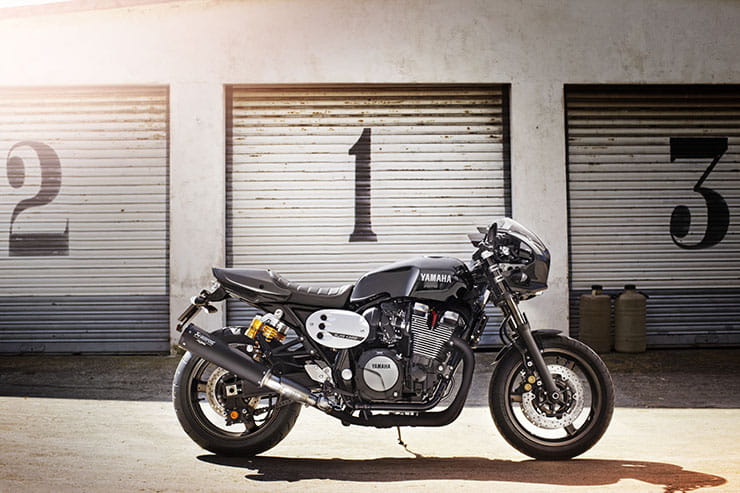
Yamaha XJR1300 Racer (2015) – Technical Specification
|
Original price
|
£9599
|
|
Current price range
|
£5500-£7000
|
|
Capacity
|
1251cc
|
|
Bore x Stroke
|
79mm x 63.8mm
|
|
Engine layout
|
Inline four
|
|
Engine details
|
Air-cooled, DOHC, 16v
|
|
Power
|
98bhp (71.9kW) @ 8000rpm
|
|
Torque
|
80lb-ft (108.4Nm) @ 6000rpm
|
|
Top speed
|
130mph
|
|
Transmission
|
Five-speed, chain final drive
|
|
Average fuel consumption
|
45mpg
|
|
Tank size
|
14.5 litres
|
|
Max range to empty (theoretical)
|
150 miles
|
|
Reserve capacity
|
30 miles
|
|
Rider aids
|
None
|
|
Frame
|
Steel double cradle
|
|
Front suspension
|
Telescopic forks
|
|
Front suspension adjustment
|
Fully-adjustable
|
|
Rear suspension
|
Twin Öhlins shocks
|
|
Rear suspension adjustment
|
Fully-adjustable
|
|
Front brake
|
2 x 298mm discs, four-piston calipers.
|
|
Rear brake
|
267mm disc, one-piston caliper.
|
|
Front tyre
|
120/70-ZR17
|
|
Rear tyre
|
180/55 – ZR17
|
|
Rake/Trail
|
24°/ 92mm
|
|
Dimensions (LxWxH)
|
2190mm x 820mm x 1120mm
|
|
Wheelbase
|
1500mm
|
|
Ground clearance
|
133mm
|
|
Seat height
|
829mm
|
|
Kerb weight
|
240Kg Wet
|
Looking for motorcycle insurance? Get a quote for this motorbike with Bennetts bike insurance

